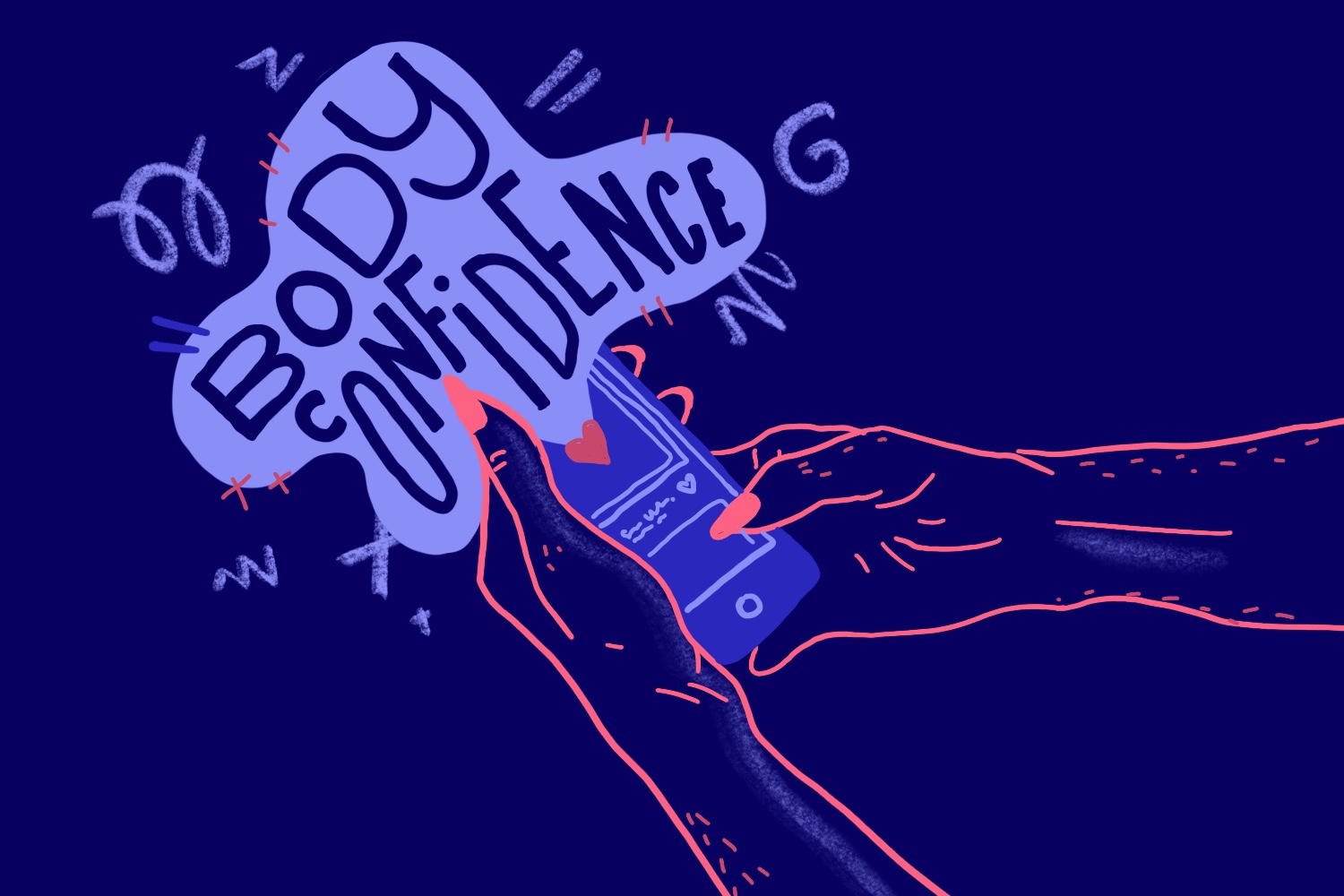
illustration by soofiya.com
Content warning: mentions of eating disorders
The relationship you establish with your body after an eating disorder is incredibly fraught. While your health and your mind may be on the road to recovery, this hardly translates to suddenly feeling body confident and for me, it has taken nearly 10 years to feel any semblance of it.
One of the paradoxical things about an eating disorder is the fact it zaps you of body confidence or sexual appeal. Despite my pursuit of an “ideal body”, the self-loathing and addiction to an unachievable and constantly changing goal only cemented a toxic view of my figure that was difficult to overcome. Moreover, to the outside world I looked unwell and frail – hardly reactions a young girl establishing confidence could use as validation.
“One of the paradoxical things about an eating disorder is the fact it zaps you of body confidence or sexual appeal”
The tough thing that is rarely discussed is that these damaging reflections don’t miraculously change when you recover. For those who reach the other side, your body is “healthy”, your mind too in comparison, but this doesn’t necessarily change the way you see your body.
One thing I can remember from the hazy years of my teens during the throws of my illness was the way in which I regressed in maturity. I may have been 15 but as my friends played up to their upcoming adulthood, I became even more childlike. Instead of drawing attention to my growing hips or bra size, I would play those down and wear billowing t-shirts and skinny jeans to emphasise the increasingly childish physique I had so painfully acquired.
This mentality may have evolved when I got help but it didn’t completely change. During treatment, I was fed, I was told what to do and I listened and kept going for any praise given at the end. As a result, for a long time, my body rarely felt like my own.
“It’s taken me a long time to work out why I could never get undressed even after feeling better. At first, seeing my own body in a sexual way felt bizarre and foreign”
This dynamic is hard to change when you move on with your life after such an experience – it’s often easy to revert back to feeling five years old in situations to do with your body and shun responsibility for your body. One instance where this became painfully clear for me was undressing in front of another person. This is a powerful process in many ways as it invites vulnerability on your own terms. Naturally, I found undressing publicly too daunting, it left me in terror, and I would simply feel outside of the situation looking in whenever this initially happened.
It’s taken me a long time to work out why I could never get undressed even after feeling better. At first, seeing my own body in a sexual way felt bizarre and foreign – I felt young with no control or understanding of what to do. In hindsight, I think when you give up control of your body to get help for an eating disorder, using your agency again during sex is terrifying. It requires you to ignore those damaging thoughts about your body and to just be in the moment – things no one ever teaches you how to do.
“One of the things that slowly altered how I felt about my own body was the changing landscape of sexuality and body confidence on social media”
Really it took me years to see myself and my body as an adult’s. The idea of taking up space and doing so happily and sexily felt not only alien but horrible at first. Part of this is gendered as women are rarely encouraged to take up space, and the other side of this is the illness’ aftermath.
One of the things that slowly altered how I felt about my own body was the changing landscape of sexuality and body confidence on social media. As awful as sites like Instagram can be for perpetuating a Western thin-bodied ideal standard of beauty, through the rise of the influencer and more diverse models, social media has also allowed for a diverging collective of people proudly flaunting their body’s of all sizes and shapes.
It sounds superficial but this nuanced idea of body confidence is changing the way I want to see myself. It’s beyond helpful to see influencers I love how they acknowledge the pressures and insecurities we all harbour. I’m not necessarily saying Instagram models are our salvation but the conversation around body confidence (which once felt difficult to engage with as a teen) is now helping me reflect and address the aftermath of my illness.








